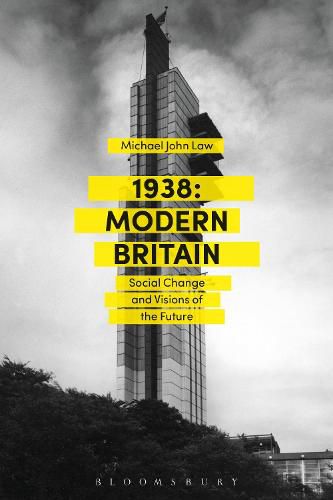Readings Newsletter
Become a Readings Member to make your shopping experience even easier.
Sign in or sign up for free!
You’re not far away from qualifying for FREE standard shipping within Australia
You’ve qualified for FREE standard shipping within Australia
The cart is loading…






In 1938: Modern Britain, Michael John Law demonstrates that our understanding of life in Britain just before the Second World War has been overshadowed by its dramatic political events. 1938 was the last year of normality, and Law shows through a series of case studies that in many ways life in that year was far more modern than might have been thought.
By considering topics as diverse as the opening of a new type of pub, the launch of several new magazines, the emergence of push-button radios and large screen televisions sets, and the building of a huge office block, he reveals a Britain, both modern and intrigued by its own modernity, that was stopped in its tracks by war and the austerity that followed. For some, life in Britain was as consumerist, secular, Americanized and modern as it would become for many in the late 1950s and early 1960s.
Presenting a fresh perspective on an important year in British social history, illuminated by six engaging case studies, this is a key study for students and scholars of 20th-century Britain.
$9.00 standard shipping within Australia
FREE standard shipping within Australia for orders over $100.00
Express & International shipping calculated at checkout
In 1938: Modern Britain, Michael John Law demonstrates that our understanding of life in Britain just before the Second World War has been overshadowed by its dramatic political events. 1938 was the last year of normality, and Law shows through a series of case studies that in many ways life in that year was far more modern than might have been thought.
By considering topics as diverse as the opening of a new type of pub, the launch of several new magazines, the emergence of push-button radios and large screen televisions sets, and the building of a huge office block, he reveals a Britain, both modern and intrigued by its own modernity, that was stopped in its tracks by war and the austerity that followed. For some, life in Britain was as consumerist, secular, Americanized and modern as it would become for many in the late 1950s and early 1960s.
Presenting a fresh perspective on an important year in British social history, illuminated by six engaging case studies, this is a key study for students and scholars of 20th-century Britain.